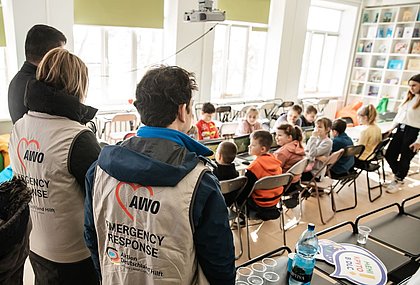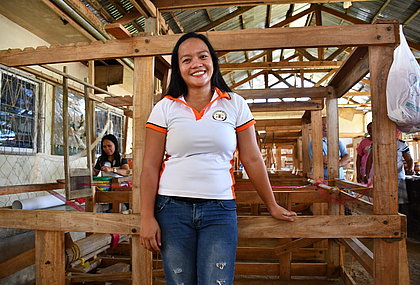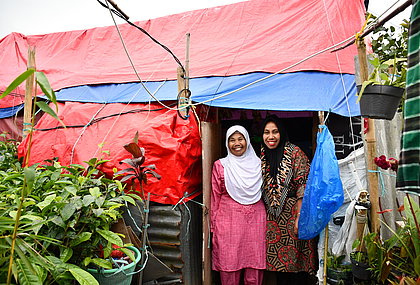
The province of Albay is located in the south-eastern part of the island of Luzon in the Philippines. The island is exposed to strong typhoons all year round. The province is also home to the Mayon, the most active volcano in the Philippines. This poses a major threat to the people in the region. The combination of existing environmental problems in the province, including uncontrolled mining of rocks, illegal logging and other pressures, creates a worrisome situation that can lead to disasters and serious consequences related to climate change.
Despite long-standing challenges, disaster risk reduction measures remain inadequate. Most programmes do not take into account the specific needs of vulnerable local communities, ignore the potential of local resources and in some cases even contribute to increasing people's vulnerability. Furthermore, there is a lack of government support. Often, villages in particular do not have access to local assistance. The participation of women and young people in particular is underutilised.
Among the most vulnerable groups that suffer the most from the effects of disasters and climate change are farmers, women and youth. For example, they are often endowed with limited resources or have a low socio-economic status. Because of this, it is important to strengthen their capacities and enable them to participate more actively in decision-making processes and local governance.
Together with the local partner organisation CONCERN, we implement disaster risk reduction measures. The project focuses on the needs of rural communities in selected areas that are particularly vulnerable to disasters. It aims to actively reduce disaster risk and promote resilience building. At the same time, it promotes a holistic approach that engages communities on environmental regeneration, disaster risk reduction and climate change adaptation.
Community participation in planning processes

The project supports the empowerment of vulnerable people by sensitising farmers, women and youth, building their skills and capacities. It promotes the formation of community-based disaster risk reduction organisations. Training on organisational development is also provided and platforms are created to enable broader participation and stronger collective decision-making.
The project also raises awareness among farmers about the importance of climate-friendly agriculture. A community nursery allows for joint exchange and the farmers can put their skills into practice during the training sessions. The demo farm also serves as a learning space for other farmers, students and young people. Youth are actively encouraged to take a leading role in environmental protection and regeneration activities in schools and their community through information, education and communication campaigns. In addition, the project carries out consultations, networking and advocacy campaigns with schools, civil society organisations and stakeholders in other communities outside the project area. The aim is to gain wider support for the project's collaboration and to build sustainability of the activities.
OUR LOCAL PARTNER: CONCERN
CONCERN is a non-profit organisation in the Philippines. Main mission is comprehensive disaster relief. Since 1986, it has been active in disaster preparedness, mitigation, emergency relief, early recovery, reconstruction and development. Its main principle is people-centred development. CONCERN supports the organised efforts of vulnerable sectors to address existing problems. CONCERN strives to serve the real needs and interests of the people with the people comprehensively.
Projectinfo
| Project | Environmental campaign to strengthen the resilience of the population (ECSPRes project) |
|---|---|
| Place/Region | Municipalities of Malilipot, Santo Domingo and Bacacay, Tabaco City, Albay Province, Philippines |
| Partner | Center for Emergency Aid, Rehabilitation, and Development Incorporated (CONCERN Inc.) |
| Target group | Farmers, women, youth and other community members including local officials/leaders |
| Activities |
|
| Duration | November 2022 – April 2024 |
| Budget | 200.000 Euro |
| Sponsor | AWO International, Aktion Deutschland Hilft |



